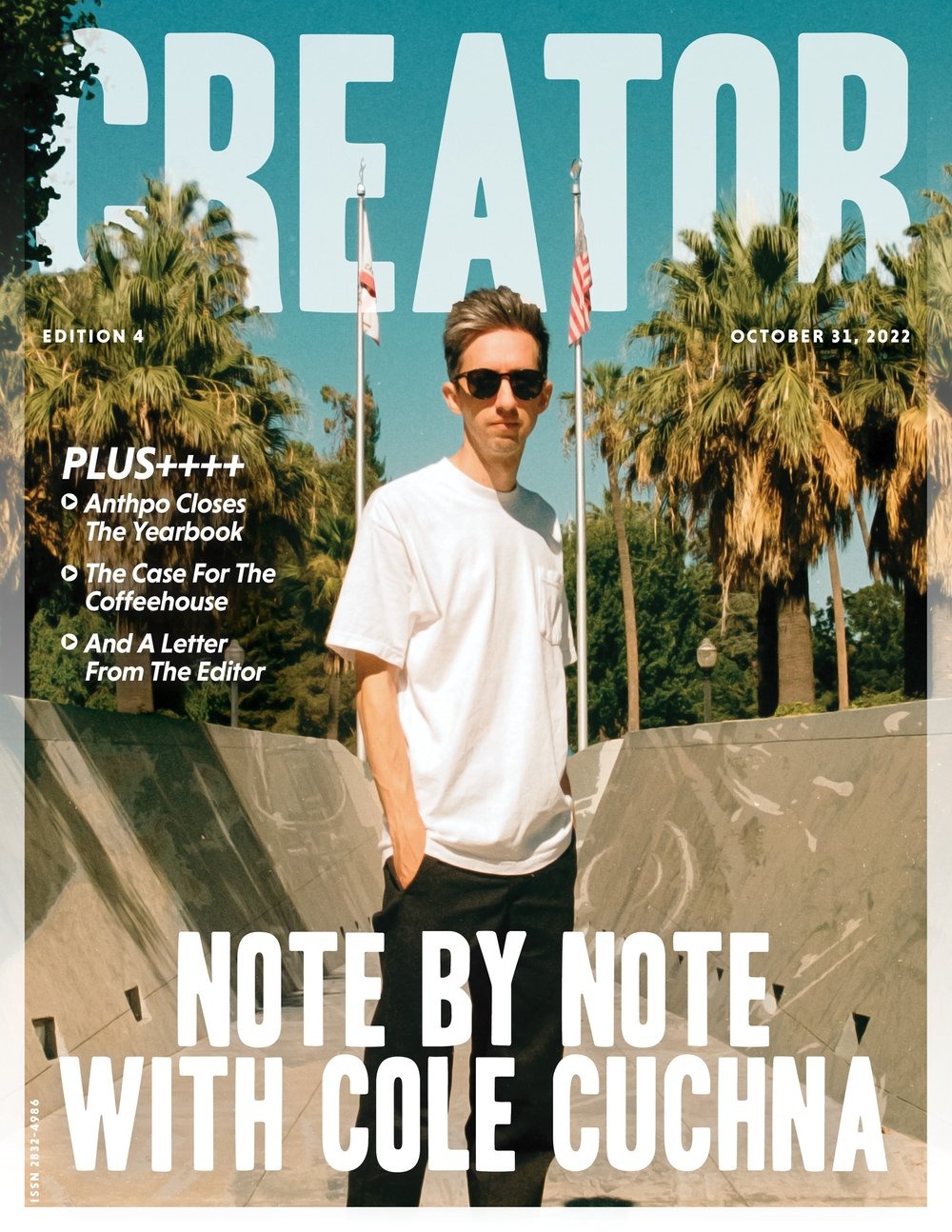When Cole Cuchna ’15 (Theory/Composition) arrived at Sacramento State to study music theory, he expected to immerse himself in the technical intricacies of sound. What he didn’t anticipate was falling in love with something entirely different—the art of writing about music.
“In music history classes, you write essays on Beethoven or Shostakovich, analyzing their works and the historical context in which they were created,” Cuchna recalls. “I really fell in love with the research process.”
That passion for deep musical analysis led him down an unexpected path. Today, Cuchna is the creator and host of Dissect, an acclaimed podcast that takes a song-by-song, note-by-note approach to breaking down iconic albums. Since its launch in 2016, Dissect has grown into one of the most celebrated music podcasts, earning accolades from The New York Times, Time Magazine, and The Guardian. In 2018, it was acquired by Spotify, allowing Cuchna to make his passion his full-time career.
Podcasting wasn’t always on Cuchna’s radar. His journey began at 13 when he first picked up a guitar, leading him to pursue music in any way he could. Twice, he dropped out of community college to focus on his band, but by his mid-20s, he realized that being a touring musician wasn’t for him. Seeking a deeper understanding of music, he enrolled at Sac State, even though he had no formal training in reading sheet music.
To pass his audition, he cleverly transcribed a piano piece he had written into notation software, then played it from memory, making it appear as though he was reading the sheet music. Once admitted, however, he was determined to catch up. He spent long hours in Capistrano Hall, forming close bonds with professors and fellow students.
One of those professors, Stephen Blumberg, recalls Cuchna as one of the most talented composition students he had ever taught. “He came in as a rock musician, but his grasp of classical music and theory developed tremendously,” Blumberg says. “Dissect is the perfect culmination of his skills, interests, and expertise.”
However, during his studies, Cuchna noticed a stark divide between classical and popular music. While Beethoven’s symphonies were dissected with rigorous analysis, contemporary albums received little scholarly attention. That gap stayed with him, even after graduation.
After earning his degree in 2015, Cuchna briefly pursued a solo music career before taking a job as a barista. But his love for music research never faded. Then, in March 2015, just a day after his daughter was born, he experienced a life-changing moment.
As he rocked his newborn, he listened to Kendrick Lamar’s To Pimp a Butterfly for the first time. The album’s depth struck him profoundly, sparking an insatiable curiosity to analyze it the way he once studied classical compositions.
That inspiration led to Dissect. In 2016, he independently launched the podcast with 22 episodes dedicated solely to To Pimp a Butterfly. He researched, wrote, and recorded each episode alone in his walk-in closet. The following season, he turned his focus to Kanye West’s My Beautiful Dark Twisted Fantasy. His meticulous breakdowns quickly caught attention, and in 2018, Spotify acquired the show, allowing him to quit his day job and dedicate himself fully to his craft.
With 11 seasons and multiple mini-seasons under his belt, Cuchna continues to bring the same academic rigor he applied to Beethoven and Shostakovich to artists like Beyoncé, Tyler, the Creator, and Bo Burnham. His analyses explore musical structure, lyrical depth, and cultural impact—elements often overlooked in popular music discourse.
Take Radiohead’s Nude, for example. Cuchna explains how the song exists simultaneously in E major and C-sharp minor, embodying a tension between hope and despair. Tyler, the Creator’s I THINK fuses Nigerian dance influences, paying tribute to his heritage. And Bo Burnham’s All Eyes on Me employs a pentatonic scale to create a hypnotic, dreamlike effect, mirroring the protagonist’s descent into depression.
While his personal tastes lean toward alternative rock, Dissect primarily focuses on hip-hop and R&B. Not only do these genres deeply engage with social and political issues—similar to classical compositions of the past—but they also remain underrepresented in serious musical analysis.
“There’s not a lot of scholarly research on hip-hop,” Cuchna says. “That does a disservice to the genre. Part of why I’ve covered it so much is to start conversations about this music that people are actually listening to, that is great, and that speaks to this moment in history.”
Ironically, each Dissect episode is essentially a spoken essay—the same kind Cuchna used to write in college, now enhanced with musical breakdowns and artist interviews. The show has allowed him to fulfill his original goal: to bridge the gap between classical and contemporary music.
“Great music is great music,” he says. “Music conveys the human experience. The circumstances of our lives change, but at its core, the essence of music remains universal across time, genres, and mediums.”
And though Dissect is now a global success, some things remain unchanged. The podcast is still recorded in his closet—proof that passion and persistence, not fancy studios, create truly great art.















Post a comment